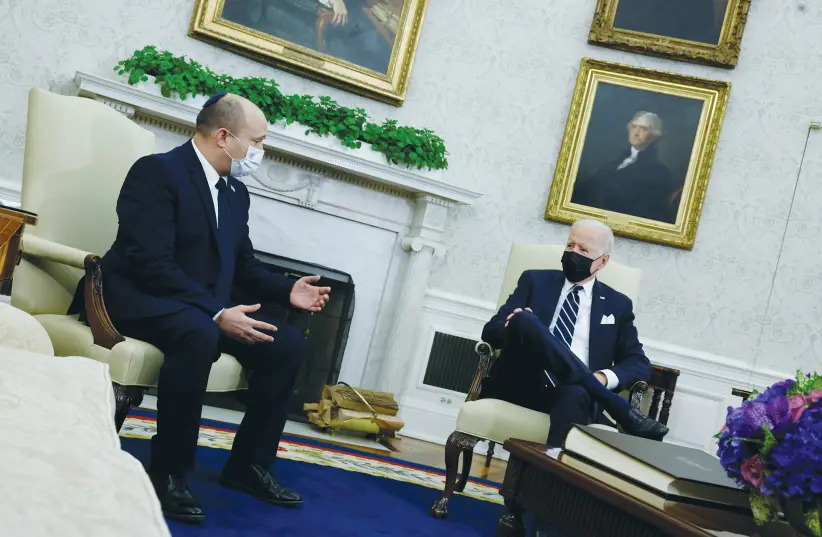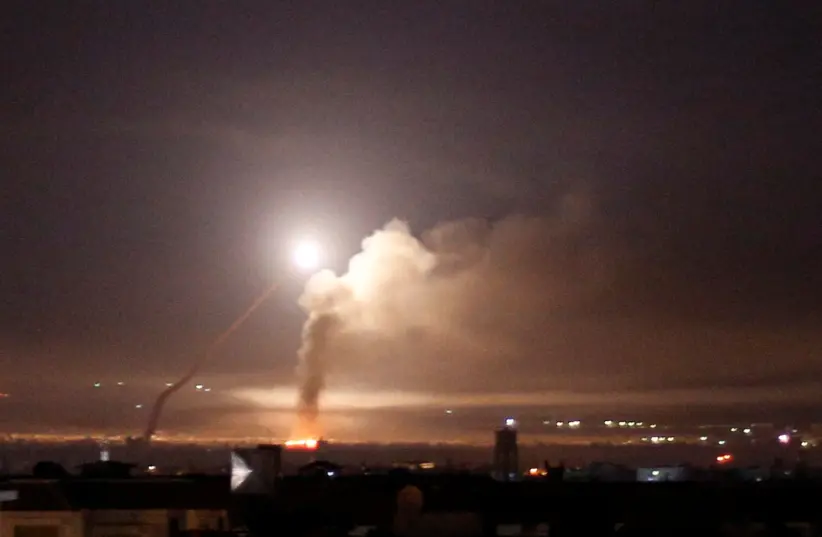
With nuclear deal unlikely, Israel, US look for alternatives on Iran
The US is moving toward ending its efforts to return to the 2015 nuclear deal with Iran, as Tehran continues to make demands without showing a willingness to consider concessions, Israeli diplomatic sources said on Tuesday.
National Security Adviser Eyal Hulata met with his American counterpart, Jake Sullivan, in Washington this week to discuss alternative ways to stop Iran from obtaining a nuclear weapon in the event – which Jerusalem views as likely – that the Iran deal is not revived.
“Sullivan emphasized that the United States is attuned to Israel’s concerns about threats to its security, including, first-and-foremost, from Iran and Iranian-backed proxies,” said a White House statement.
Prime Minister Naftali Bennett’s Office did not comment on the meeting.
Multiple diplomatic sources in Jerusalem shared the assessment that the US is close to abandoning the revival of the 2015 Joint Comprehensive Plan of Action nuclear deal in light of Iran’s demand that Washington removes the Islamic Revolutionary Guard Corps from its list of Foreign Terrorist Organizations (FTO) and its refusal to take reciprocal steps.
The chances of the US and Iran returning to the JCPOA are “slim to none,” a senior diplomatic source said, adding that as time passes, the less the likelihood of sealing a deal.
Indirect negotiations between the US and Iran to return to the JCPOA, which limited Tehran’s nuclear program in return for the lifting of sanctions, began in early 2021. An agreement was essentially concluded whereby the US would lift nuclear-related sanctions placed by the Trump administration, and Iran would return to compliance with the JCPOA’s restrictions on uranium enrichment and stockpiling.
But in February, Iran began to demand the IRGC’s de-listing from the FTO, which the Biden administration viewed as a non-nuclear issue. As such, it offered various concessions that Iran could make in return that are not related to its nuclear program, such as agreeing not to attack American officials. However, Iran has refused all such offers.
Israel advocated vehemently against the removal of the IRGC from the FTO.
A US official told journalist Laura Rozen that “Israel is not a key factor,” rather the White House and Department of Defense opposed removing IRGC from the FTO list.
Bennett and US President Joe Biden spoke on the phone earlier this week and discussed “the threat posed by Iran and its proxies,” among other matters, according to the White House statement.
Bennett said that he is “sure that President Biden, who is a true friend of Israel and cares about its national security, will not allow the IRGC to be removed from the list of terrorist organizations. Israel has clarified its position on the issue. The IRGC is the largest terrorist organization in the world.”
Sullivan and Hulata discussed “a range of regional and global security issues,” on Monday, with the two agreeing to continue the ongoing coordination through the US-Israel Strategic Consultative Group “and strengthen security and diplomatic cooperation wherever possible with other regional partners.”
The White House also noted, without elaborating, that the two men also discussed Israel’s relationships “with key Indo-Pacific countries.”
Another area of discussion was the ongoing war in Ukraine “and the need to continue supporting our Ukrainian partners.”
The two sides “committed to continue their close coordination on the range of security issues of importance to both the United States and Israel, and they look forward to President Biden’s visit to Israel in the coming months,” the White House said.
The visit was announced without a date after the Biden-Bennett call.
Source: https://www.jpost.com/middle-east/article-705119

